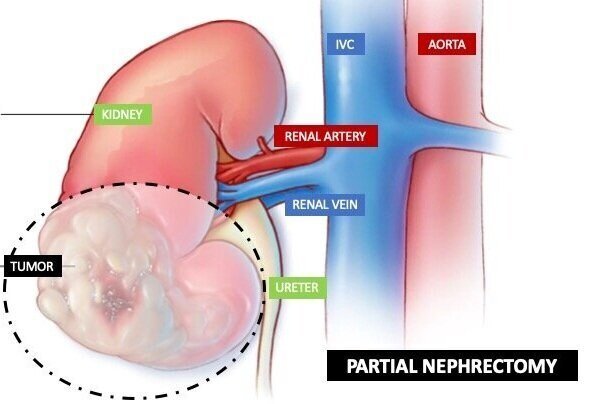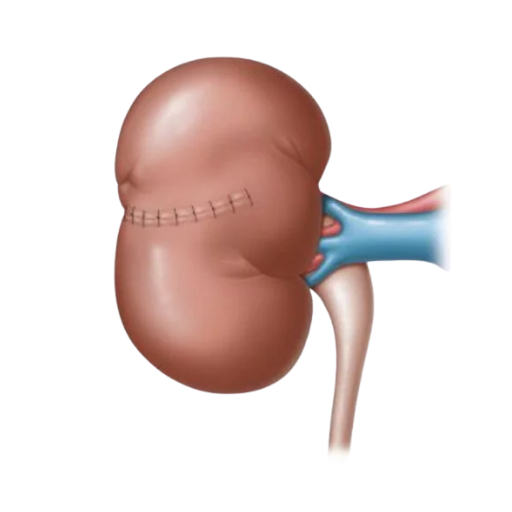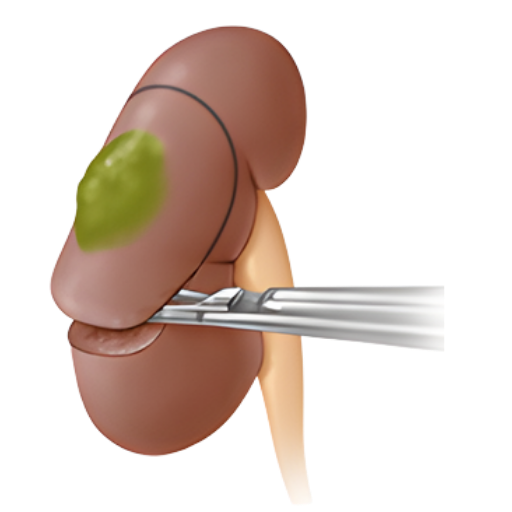Dr. Nitin Singhal
Partial Nephrectomy Surgeon in Ahmedabad, India
About Us
Dr. Nitin Singhal: Partial Nephrectomy Cancer Surgeon in Ahmedabad
Dr. Nitin Singhal is a renowned partial nephrectomy cancer surgeon in India, with over 15 years of experience and more than 5,000 successful major cancer surgeries. He is a pioneer in managing gastrointestinal, gynecological, and urological cancers, with special expertise in advanced robotic surgery, HIPEC procedures, and kidney-sparing cancer surgeries.
In kidney cancer care, you need a surgeon who not only performs precise and effective surgery but also provides compassionate, patient-focused care. Dr. Singhal combines technical expertise, accuracy, and a highly human approach to guide patients through every stage of treatment.
With Dr. Nitin Singhal, you are choosing more than a surgeon—you are gaining a trusted companion. His guidance through partial nephrectomy and kidney cancer treatment ensures both optimal surgical outcomes and emotional support throughout your journey.
Happy Clients
Successful Surgeries
Patients Reviews Rate
Years of Experience
What is Partial Nephrectomy?
Partial nephrectomy is a kidney-sparing surgery in which only the tumor or diseased portion of the kidney is removed, while the healthy part of the kidney is preserved. This procedure is ideal for patients with early-stage kidney cancer or small tumors, aiming to maintain normal kidney function and overall health.
Also known as nephron-sparing surgery, it is a preferred option when feasible because it reduces the risk of chronic kidney disease compared to removing the entire kidney. Patients seeking partial nephrectomy cancer treatment in Ahmedabad benefit from advanced techniques such as robotic-assisted surgery, which allows precise tumor removal, minimal blood loss, and faster recovery.

Types of Partial Nephrectomy Cancer Surgery

Open Partial Nephrectomy
The surgeon removes the tumor through a traditional open incision in the abdomen or side. It allows direct access to the kidney and is used for larger or complex tumors.

Laparoscopic Partial Nephrectomy
A minimally invasive surgery using small incisions and a camera to guide tumor removal. It reduces pain, scarring, and recovery time compared to open surgery.

Robotic-Assisted Partial Nephrectomy
Robotic technology provides enhanced precision, flexibility, and visualization for removing kidney tumors. This approach minimizes blood loss and speeds up recovery while preserving kidney function.

Radiofrequency Ablation-Assisted Partial Nephrectomy
Your Guide to Partial Nephrectomy
Partial nephrectomy usually is done in cases of kidney cancer or focal kidney tumours; thus, the previous history of kidney malignancy is the primary risk factor. Other causes are smoking, obesity, hypertension, chronic kidney disease, and family history of cancer in the kidney, thus predisposing an individual to have tumours.
There is also the contribution of age and sex since kidney cancer is more prevalent in the elderly and men. Knowing the tumours at an early age and having frequent check-ups will help in detecting the tumours before they grow to a large size; hence, patients will be good subjects for kidney-sparing surgery.
Sometimes the tumours in the kidneys which demand partial nephrectomy do not produce any symptoms; hence, they are difficult to detect at the early stages. As the tumour advances, the patients might develop the symptoms of blood in the urine, constant pain at the flank or back, tiredness, or any weight loss that cannot be explained.
The other symptoms may be fever, loss of appetite or the swelling of the legs. The identifying of these symptoms at the initial stages and timely imaging or the diagnostic tests will enable the proper intervention to be done and maintain the kidney functions.
Partial nephrectomy is the procedure of removing the tumour only but sparing the normal part of the kidney, either using open, laparoscopic or robotic-assisted surgeries. This is to reduce the risk of chronic kidney disease, as it is proven to treat localised cancer.
In severe or high-risk situations, surgery can be used with targeted therapy, immunotherapy or postoperative follow-up to decrease the risk of recurrence. Having proper follow-ups, lifestyle changes and rehabilitating programmes assists patients in keeping their kidneys functioning and generally improving their living conditions.
Why Choose Dr Nitin Singhal For Partial Nephrectomy Cancer Surgery?
Dr. Nitin Singhal is a renowned partial nephrectomy cancer surgeon in India with 15+ years of experience and 5,000+ successful surgeries. He provides expert care in cancers including gastrointestinal, gynecological, thoracic, and urological, with special focus on kidney cancer and partial nephrectomy.

Expertise
He specializes in open, laparoscopic, and robotic-assisted partial nephrectomy for early-stage kidney tumors. His precision removes the tumor while preserving healthy kidney tissue and reducing complications.
Infrastructure
Dr Nitin Singhal operates in hospitals with advanced robotic systems, imaging technology, and modern ICUs. Specialized oncology teams and trained staff support patients from diagnosis through recovery.
Technology
Using robotic-assisted surgery, he ensures minimal blood loss, faster recovery, and precise tumour removal. The focus is on organ preservation, meticulous planning, and individualised treatment for optimal outcomes.
Benefits of Partial Nephrectomy Cancer Surgery?

Faster Recovery Time

Low Risk of Infection

Lesser Scars

Less Discomfort After Surgery

Shorter Hospital Stay

Speedier Return to Daily Life
Commonly Asked Questions
Is a partial nephrectomy major surgery?
Yes, partial nephrectomy is considered a major surgery because it involves removing part of the kidney while preserving healthy tissue. Minimally invasive and robotic techniques make it safer and reduce recovery time. Careful surgical planning ensures minimal complications.
Can cancer return after partial nephrectomy?
There is a risk that cancer can recur after partial nephrectomy, particularly if any cancer cells remain or new tumors develop. Regular follow-ups, imaging, and lab tests help detect recurrence early. Early intervention improves long-term outcomes.
How to know cancer stage from biopsy report?
The biopsy report shows the type, grade, and aggressiveness of the tumor. Doctors combine this with imaging results to determine the exact stage of cancer. Staging guides treatment and prognosis.
How long is recovery from a nephrectomy?
Recovery usually takes 4–6 weeks for minimally invasive surgery and up to 8 weeks for open surgery. Patients gradually resume normal activities while following post-operative care instructions. Close monitoring ensures optimal healing and kidney function.
Get In Touch!
We provide a 24*7 emergency care
If you have any kind of robotic cancer surgery-related medical emergency, visit Sterling Hospital. An expert doctor is always available & treatment will be provided at once.

